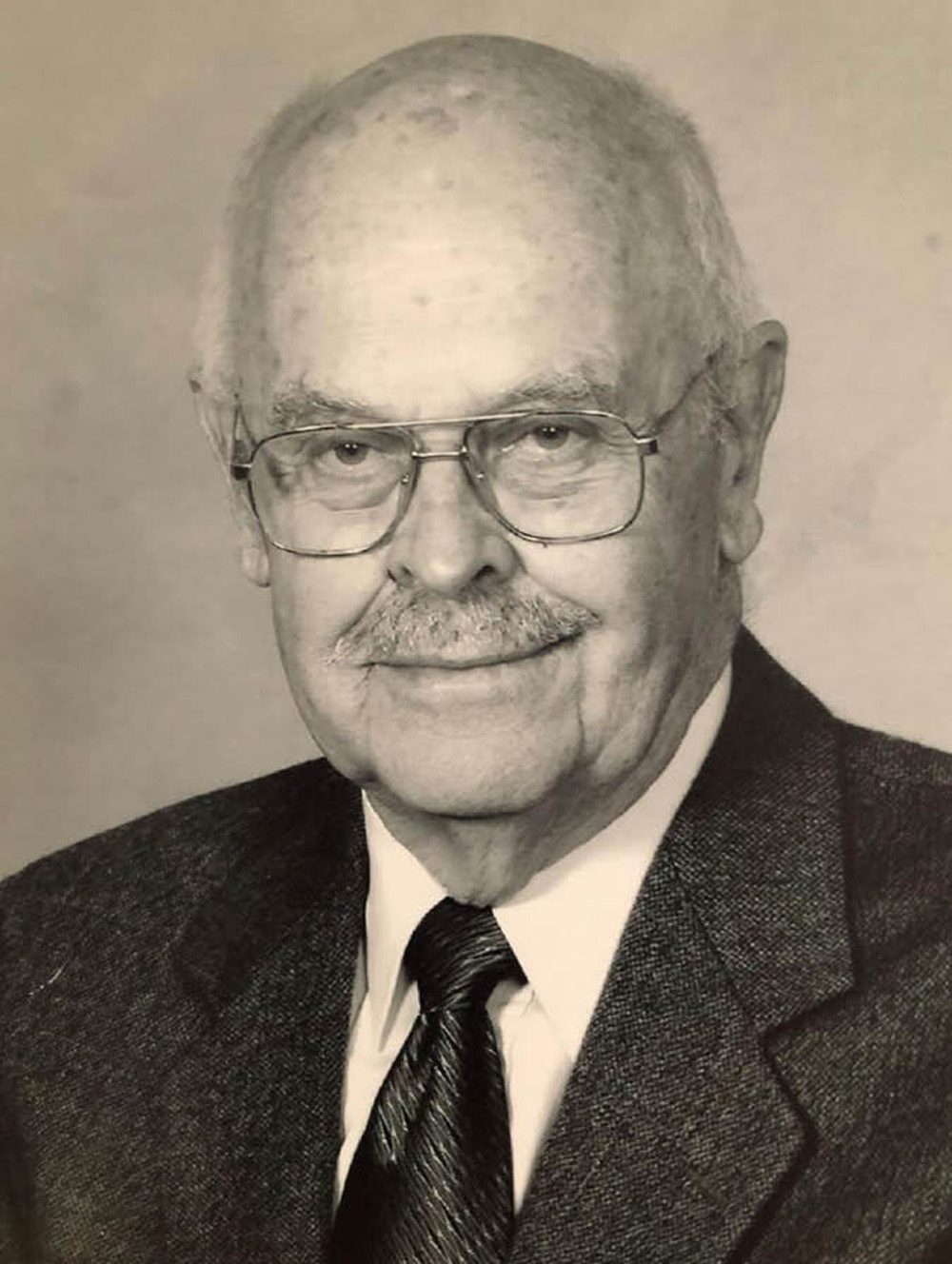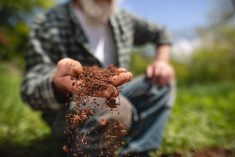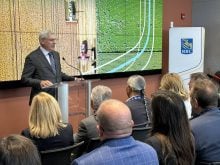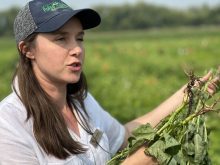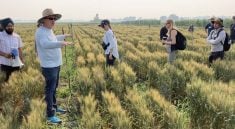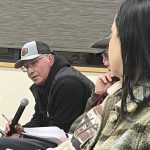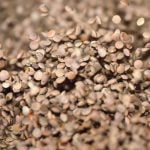The University of Manitoba is about to launch a new lectureship named in honour of a man who helped bridge the divide between conservation and agriculture.
The Ted Poyser Lecture in Soil Health will be hosted annually by the soil science department, and the inaugural event is scheduled March 13. Each year a speaker will be invited who is recognized for expertise in soil health, and the series will cover a new topic each year, the university said.
First on the docket is Melissa Arcand from the soil science department at the University of Saskatchewan, with a talk titled “Depth of a Plow: Sharing Soil Health Knowledge and Education Resources with First Nations in the Prairies.”
Read Also
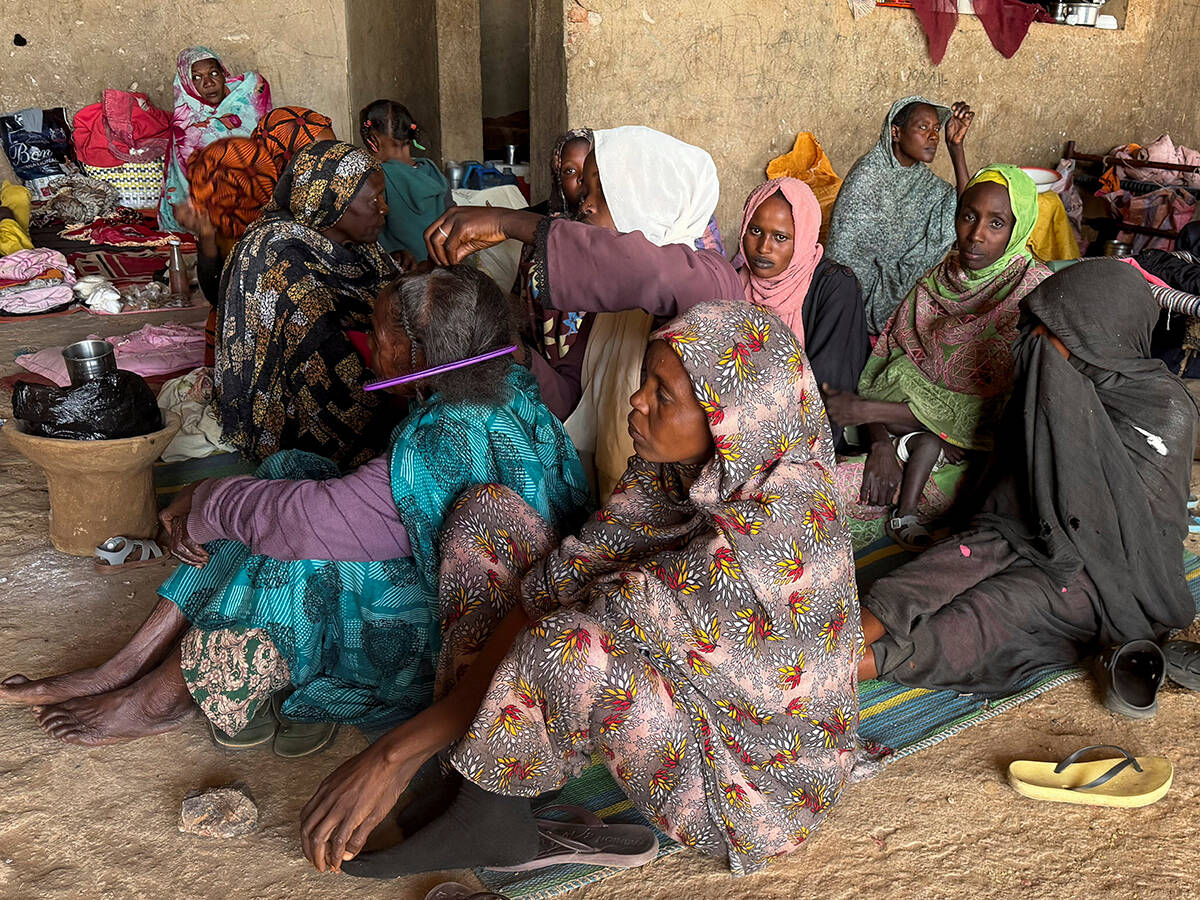
Global humanitarian aid slashed by one-third
Humanitarian aid around the world was cut by a third in 2025 and Canada is one of the culprits.
The lecture series is funded by a $100,000 endowment, set up with the Winnipeg Foundation in 2021, called the Ted Poyser Plant Ideas Fund.
Why it matters: Ted Poyser (1927-2020) had a history of bringing conservation and agriculture together to work collaboratively.
Tim Sopuck, a colleague and long-time friend of Poyser, said the lectureship’s namesake would have found that subject matter fascinating.
“Ted would have been very comfortable in today’s world, and the discussions around how Indigenous worldviews come into the question of soil health,” he said. “He’d be sitting in the front row, taking it all in.”
Sopuck is also among the people who are raising funds and helping to establishment the lecture series.
Poyser was of the adamant belief that conservation programs in agro-Manitoba had to be farmer friendly, Sopuck recalled. But he was patient and relatable, waiting for the ideal time to introduce people to new ideas.
He was also a mentor, Sopuck added, and the list of people he inspired includes those in senior government and other influential roles.
“Ted was such a leader for me. He fundamentally changed the way I did business, and there are many people who would say that. There was a multiplier effect with all the people he mentored along the way.”
Grassroots
Poyser was born on his family farm in Austin, Man., in 1927. In that environment, he couldn’t help but see the intertwined nature of agriculture and conservation.
“He grew up in the crucible of the Dirty ‘30s,” said Sopuck. “As a kid, he saw soil blowing away. He lived through grim times, and it had to have a major impact on him.”
After graduating with a bachelor of science in agriculture and a masters in soil science from the University of Manitoba, Poyser began working for the province, first doing soil surveys and then as soils specialist.
“I sometimes think he might have walked almost every section of ag land in Manitoba with a soil probe in his hand,” said Sopuck. “Anytime we went for a ride with Ted in the car, anywhere in agro-Manitoba, I could say, ‘Ted, tell me about the soils,’ and he would list off the properties of that field. It was just unbelievable.”
Poyser evolved from a focus on soils to a focus on the landscape. His legacy includes efforts to establish what are now watershed districts in the province. He was instrumental in founding what is today called the Whitemud Watershed District and was on the ground floor of Manitoba’s conservation districts, which merged into watershed districts in 2020.
After retiring in 1981, Poyser chaired the Manitoba Habitat Heritage Corporation in 1989.
Sopuck, who is recently retired, spent a little more than four decades on conservation programs, almost all of them on the agricultural landscape in rural Manitoba. He and Poyser worked in the same circles, but the two became friends after Sopuck started working at the heritage corporation in 1991.
“Ted was the chair and Ted really set the course for that organization,” said Sopuck. “He took an organization that was basically dormant and he made it really one of the leading conservation organizations in agro-Manitoba.”
During that time, Poyser began to focus on bringing conservationists and farmers together.
“Up to that time, it had been pretty fractious. Farmers hated the conservation people, and vice versa,” said Sopuck. “Ted tried to break through that. Instead of trying to write rules and regulations, he advocated providing information and incentives to inspire agricultural producers to undertake conservation initiatives.”
In the early 1990s, he developed the Prairie CARE (Conservation of Agriculture, Resources and Environment) concept, which was ultimately adopted by Ducks Unlimited Canada in its own work co-operating with farmers.
Sopuck said the experience of creating an event to honour his long-time friend has been gratifying. But if Poyser were still here, the man would want the event to be about more than just him.
“We are looking forward to not only having an event to recognize Ted, but ultimately having an event that moves the needle a bit on soil health,” said Sopuk.




